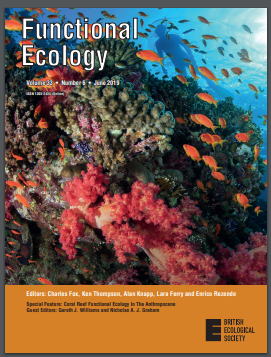
The inherent complexity of high‐diversity systems can make them particularly difficult to understand. The relatively recent introduction of functional approaches, which seek to infer ecosystem functioning based on species’ ecological traits, has revolutionized our understanding of these high-diversity systems. Today, the functional structure of an assemblage is widely regarded as a key indicator of the status or resilience of an ecosystem. Indeed, functional evaluations have become a mainstay of monitoring and management approaches. But is the heavy focus on broad metrics of functional structure grounded in empirical research? In this review, we propose a universal operational definition of the term ‘function’ that works from a cellular to a global level. Specifically, it is the movement or storage of energy or material. Within this broad definitional framework, all functions are part of a continuum that is tied together by the process‐based unifier of material fluxes. With this universal definition at hand, we then present a path forward that will allow us to fully harness the power of functional approaches in understanding and managing high-diversity systems such as coral reefs.












